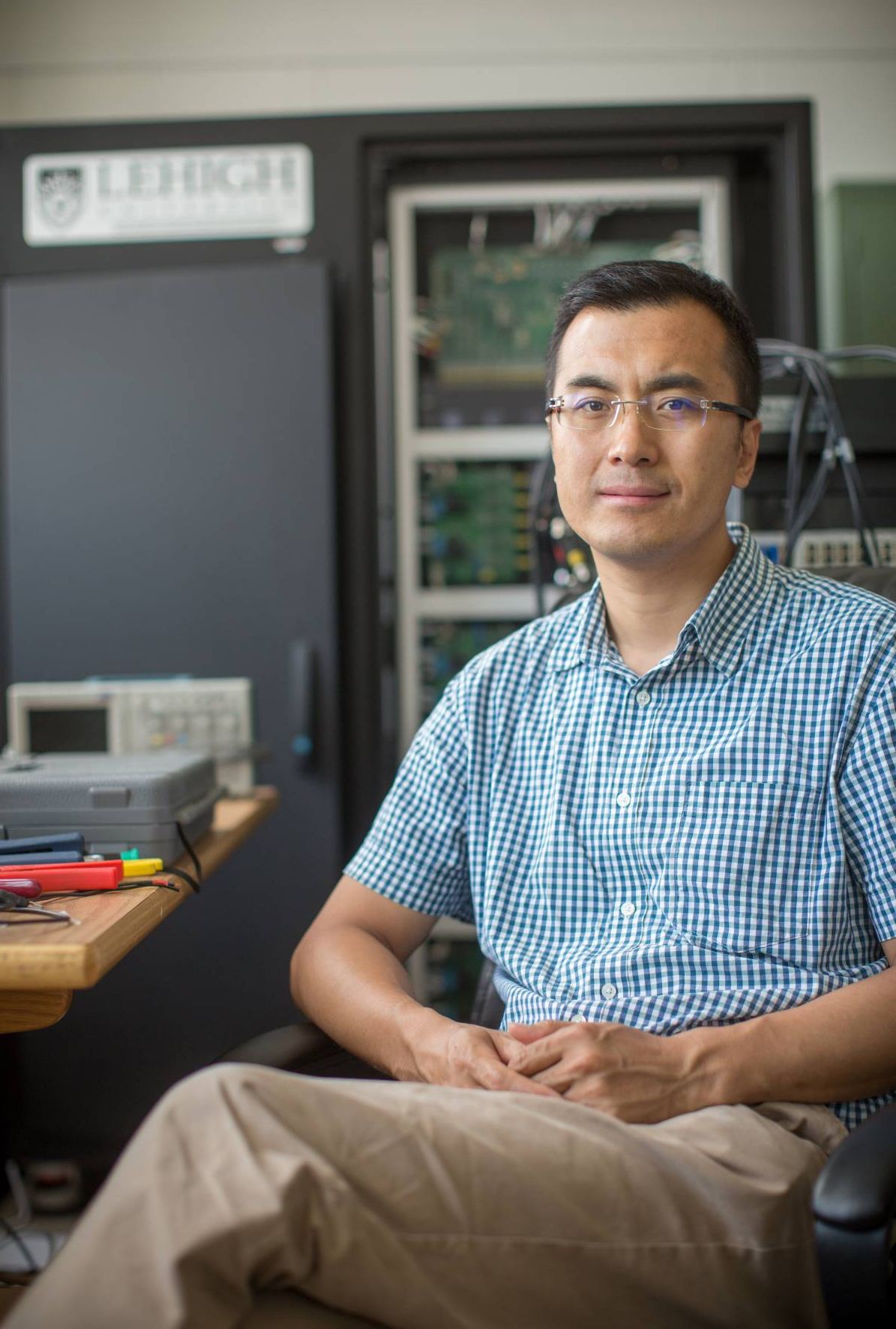ECE researcher Wenxin Liu awarded two ONR grants—totaling $900,000—for algorithmic design and hardware experimentation that could lead to advances in civilian microgrid technology
Wenxin Liu’s research has been funded by the Office of Naval Research for the past 10 years.
That support will continue with the addition of two grants, each providing $450,000 over three years. Both awards are a continuation of the associate professor of electrical and computer engineering’s work on the advanced control of power systems.
The first of his two projects examines real-time optimal power flow control in power electronic power distribution systems (PEPDS).
Liu is developing an advanced algorithmic design and doing hardware experimentation. Ultimately, his work is laying the foundation that will eventually allow naval ships to travel longer distances. It will also reduce waste energy—and costs—and has implications outside the military.
“A ship’s power system is a special kind of microgrid,” says Liu. “If we can improve its performance, we can apply the same approach to the civilian microgrid.”
Microgrids, which are smaller networks with multiple distributed generators, are seen as the way of the future in power distribution, says Liu. They are more flexible (operating in both grid-connected and autonomous modes), customizable, and efficient than traditional, centralized power grids, and less vulnerable to attack by malicious actors.
The second project involves coordinating heterogeneous generators within the ship’s power system. Currently, the generators differ in terms of response speed, capacity, and reliability.
“Coordinating them is a challenging problem,” he says. “If they’re not properly coordinated, both steady and dynamic performance will be low and it’s also a waste of the capability of modern power electronics.”
Liu is employing the same algorithmic and experimentation approach to optimize the generator system and improve its performance. The end goal is also similar: to improve the reliability of the ship’s power system using a technique that can also benefit microgrids in the civilian world.
“I believe that even for basic research, we should bring future applications into consideration when we do our research,” says Liu. “That’s why I work on both algorithm and hardware design. These are problems that are practical, important, and not well studied. And they need to be solved.”
About Wenxin Liu
Wenxin Liu is Class of '61 Associate Professor of Electrical and Computer Engineering at Lehigh University. He joined the faculty of the P.C. Rossin College of Engineering and Applied Science in 2014 and leads the Smart Microgrid and Renewable Technology (SMRT) Research Laboratory. His research interests include power systems, power electronics, and controls.
Liu holds degrees in industrial automation (BS, 1996) and control theory and applications (MS, 2000) from Northeastern University, in Shenyang, China. He earned a PhD in electrical engineering from the Missouri University of Science and Technology (formerly the University of Missouri–Rolla) in 2005.
From 2005 to 2009, he was a postdoc and then an assistant scholar scientist with the Center for Advanced Power Systems at Florida State University. From 2009 to 2014, he was an assistant professor in the Klipsch School of Electrical and Computer Engineering at New Mexico State University (NMSU).
Liu has published more than 60 journal papers (mostly in IEEE Transactions with his students) and received over $3.5 million research funding from the Department of Defense/Office of Naval Research, National Science Foundation, Department of Energy, and California Energy Commission, as well as from industry. While at NMSU, he was named ConocoPhillips Faculty Fellow (2011) and received the Dean's Recognition Award (2012) and Early Career Award (2013). He was named to a P.C. Rossin professorship at Lehigh in 2016 and a Class of ’61 professorship in 2019.
Liu is an editor of IEEE Transactions on Power Systems, IEEE Transactions on Smart Grid, IEEE Transactions on Industrial Informatics, and Journal of Electrical Engineering & Technology.

